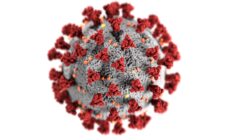Kidney failure also known as renal failure is the failure condition of the kidney to excrete waste products from the body.
Kidney is the main excretory organ in the body. Every man as a pair of kidney`s. The main function of kidney is to excrete all the unwanted waste products and toxins from the blood out of the body. This process of excretion is troubled in kidney failure. The kidney forms the hormones responsible for the strong bone and clean blood. Failure in these processes makes excess retention of waste fluid in the body leading to kidney failure or renal failure.
The two main categories of renal failure are:
- Acute kidney failure – now called as acute renal injury. This is the primary stage or the first stage of kidney failure in which the failure occurs suddenly or rapidly. Inequality is seen in the electrolyte balance of the body. Arresting the progression of underlying causes and reversing is possible.
- Chronic kidney failure – now called as the chronic renal disease. This is the chronic stage of failure where there is continued loss of kidney functions. The condition is progressive and irreversible.
Risk factors and causes:
Acute kidney failure:
The cause for acute kidney failure is the sudden scarcity in the normal blood supply to kidney to carry out the excretory process for extended period of time. Various risk factors for this cause are as follow
- Acute tubular necrosis – this is the damage in the tubular cells of the kidney.
- Acute nephritic syndrome – the GLOMERULI of the kidney is infected with associated disorders.
- Direct infections of kidney – any infection targeting directly the kidney and prolonged infection can lead to acute failure.
- Low blood pressure – decrease in blood pressure decrease the blood supply and oxygen supply to the kidney and cells begin to die.
- Urinary tract infections – infection of the pathway of urine flow. Mainly the upper urinary tract infection (PYELONEPHRITIS) occurring frequently lead to acute kidney failure.
- Urinary tract disturbances – due to the stone formation or tumors or enlarged prostrate.
- Pregnancy crisis – during pregnancy the physiological changes occur in renal and systemic hemodynamic leading to change in the renal function and altered electrolyte.
- Blood clot in the kidney blood vessels
Chronic kidney failure:
The cause for chronic kidney failure is continual and slow decline in kidney function due to various risk factors as follows
- Ageing process – as we age the kidney function reduces its functional capacity.
- Diabetes – increase in blood sugar damages the blood vessels supplying the kidney and reduce the function of the kidney. This is the most common cause for chronic failure.
- Hypertension – this is the next most common cause for chronic kidney failure. The increase in blood pressure will naturally damage the functions of kidney
- Chronic GLOMERULONEPHRITIS – a long term inflammation affecting the GLOMERULI of the kidney.
- Atherosclerosis – this is the blockages in the blood vessels supplying the kidneys affecting the kidney function.
- Unwanted toxin collection – due to inability to excrete wastes from the body.
- stumbling block in bladder
- drug induced side effect
SYMPTOMS:
ACUTE KIDNEY FAILURE:
- Decreased urine formation – due to reduction in the process of excretion and blood flow.
- Frequent urination especially at night.
- Lack of sensation.
- fatigue(tired)
- high blood pressure
- mental confusion
- Generalized swelling and swelling in hand and legs.
- hiccups
- bad breath
- nose bleeds
- blood seen in stool
- pain in hip region
CHRONIC KIDNEY FAILURE:
- This has the same symptoms of the acute failure.
- Loss of sleep usually of disturbed sleeping pattern.
- Severe headache.
- Frequent urination but less than normal quantity.
- Unusual loss of weight.
- Loss of desire to eat.
TESTS FOR KIDNEY FAILURE:
The doctors examine the heart and lung sounds by stethoscope and check for their abnormalities.
The kidney structure and urinary tract obstruction can be seen through CT scan, MRI scan, and ultrasound.
Kidney failure is easily detected by the blood and urine tests.
The blood test reveals the level of BUN and CREATININE. The level of CREATININE shows the exact GLOMERULAR FILTERATION RATE (GFR). This GFR shows whether kidney is functioning or not and the remaining capabilities.
Blood test also reveals the level of calcium, potassium, sodium, bicarbonates and red blood cells.
Urine test show the excess protein in the urine.
Biopsy is done to reveal the cause for the failure.
MANAGEMETNT:
The main aim of managing kidney failure should be to regain the normal kidney function and clearing all the fluid retentions in the body. For this all the doctor





